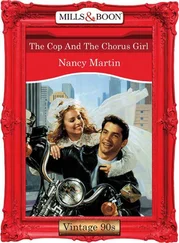“Where are the rest?” he asked. “Bring it on.”
“There are no more cases, Mr. Monk,” she said.
“Not here,” he said. “You can deliver whatever case files are left at the office.”
“This is it,” she said. “You’ve cleared everything there is. You’ve put all our operatives out of work. We have to wait now for new business to come in.”
She was so convincing I almost believed it myself. He must have believed it, or his senses were so dulled by weariness that he couldn’t detect the lie, because suddenly all the fatigue he’d been outrunning with work seemed to catch up with him. His shoulders slumped and his eyes grew heavy. He dropped into his favorite easy chair.
“I’m ready for more,” he said. “Bring it on.”
“You’ll be the first person we call,” she said.
And then the damn phone rang. Monk perked up in his chair, sitting up straight, the possibility of another crime to solve giving him a jolt of energy.
I was tempted not to answer the phone but I decided the best course was to see who it was. If it was Nick Slade, or anybody else with a mystery for Monk, I intended to hang up the phone and lie to him about who’d called.
But it wasn’t anyone with a case. It was Carol Atwater with an invitation to a wake.
Mr. Monk Wakes Up
It was unsettling to be back at Carol Atwater’s house again at just about the same time of day that we’d been there before.
On our first visit, Bill Peschel was behind the kitchen counter, pretending it was a bar. On our second visit, he was dead outside and there were cops and coroners around. And now, on our third visit, Peschel was gone and someone else was at the kitchen counter, serving real wine, beer, and soft drinks to the two dozen friends and relatives.
I wondered if the counter was being used as a bar intentionally to honor Bill Peschel or if it was just an ironic coincidence. I decided on the latter. They probably used the counter as a bar every time they entertained, whether it was a cocktail party or a wake. But even so, there was something creepy about it, especially since nobody had bothered to clear away Bill’s bottles of water yet.
Some people milled outside on the patio. I could see that the white chair had been moved off the wet grass and the wrought-iron pool fence was closed and locked again.
I didn’t expect to see anyone I knew when I arrived with Monk besides Carol Atwater, of course, and Stottlemeyer, so I was startled when I spotted Detective Paul Braddock nursing a beer and talking with Nick Slade. Every so often, Braddock would shoot a sneer at Stottlemeyer, who was standing off to one side by himself, sipping a Diet Coke and pointedly ignoring them (which I guess meant that he wasn’t actually ignoring them at all).
Monk wasn’t good with crowds and small spaces. He was practically hugging himself, his head down low, as we weaved our way over to the captain.
“You must have finally had some rest, Monk,” Stottlemeyer said. “You look almost like yourself again.”
“I wish I could say the same for you, Captain,” I said. “You look worn-down.”
“I am,” he said.
“Tough time at work?” I asked.
“The mayor and the chief aren’t in very good moods today,” Stottlemeyer said. “Haven’t you watched the news?”
I shook my head. “But you closed a big double-murder case in only forty-eight hours. Doesn’t that earn you any brownie points?”
“It’s not the rapid investigation and solid arrest that’re getting all the attention.” Stottlemeyer gestured to Monk. “It’s that we needed him to do it.”
“I’m sorry,” Monk mumbled.
“Don’t be,” Stottlemeyer snapped. “Never apologize for being the best at what you do, Monk. We caught the murderer, that’s the important thing. Everything else is smoke.”
“Smoke can kill you,” Monk said.
“You think everything can kill you,” Stottlemeyer said.
“It’s true,” Monk said. “Name one thing that isn’t lethal.”
“A cotton ball,” I said.
“You know how many people choke to death on cotton balls every year?” Monk asked. With anyone else, I’d say it was a rhetorical question. But I’m sure he knew exactly how many, not just for the last year, but going as far back as the Roman Empire.
“Which one of these people is Phil Atwater?” I asked.
Stottlemeyer tipped his Diet Coke towards the man serving drinks at the kitchen counter. One look at Phil’s poufy, blow-dried hair and Rick Springfield started singing “Jessie’s Girl” in my head.
“Don’t you think it’s odd that Carol married a man with practically the same name as her father?” I asked, hoping to drown out the song in my head by talking. “I would never marry a man with a name close to my father’s. He’d have to prove his love for me by changing his name.”
“Bill is short for William and Phil is short for Phillip,” Monk said. “So actually the names aren’t similar at all.”
“Bill and Phil sound pretty close to me,” I said.
“But William and Phillip aren’t,” Monk said.
“But that’s not what they call themselves.”
“But that’s what their names are,” Monk said.
“I’ve never understood why Bill is short for William,” Stottlemeyer interjected. “Where does the ‘B’ come from?”
“Why is Bob short for Robert?” I said. “Where does that ‘B’ come from?”
“Misspellings that were left uncorrected and, as a result, went on to contaminate the entire English language,” Monk said. “Let that be a warning to us all on the importance of proofreading.”
No one could accuse us of not engaging in highly intellectual conversations.
Carol Atwater approached us. “Thank you all for coming.”
“Your father indirectly changed my life forever,” Monk said.
“He did?” Carol asked. “How?”
“By accompanying the captain here, I was introduced to the Diaper Genie and its potential to save the world,” Monk said. “I’ll be sure that your father is mentioned during the Nobel ceremony.”
She stared at him in bewilderment. “You mean like the Nobel Prize?”
“Don’t ask,” I said. “How are you doing?”
“Okay, I guess,” she said. “We cremated Dad this morning and scattered his ashes in front of his old bar like he wanted. It’s a Jamba Juice now, but that doesn’t matter, does it?”
“I hope you cleaned it up afterwards,” Monk said. “You aren’t supposed to spread dead people in front of restaurants.”
I nudged him hard and Stottlemeyer spoke up quickly to cover Monk’s insensitivity.
“That spot will always be Bill’s Tavern to me,” Stottlemeyer said. “To all of us.”
I looked over at Braddock and Slade, both of whom were watching us. “They knew your father, too?”
“Dad called them a couple of times since he moved in, with some hot tips from the nineteen nineties,” she said. “Nick has been here twice before. Detective Braddock came for the first time the same day that you three were here. He’s in town for a convention.”
“The three of us were on the force at the same time. Bill gave us each a lot of good leads on crimes that happened or were in the works,” Stottlemeyer said. “I don’t know how he decided which one of us to grace with a particular bit of gossip. If he played favorites, I never noticed or cared. His bar was in the heart of the Tenderloin, his customers lived in the shadows, and they talked a lot when they were drunk. He always knew the word on the street.”
“Didn’t the street know he was passing it along to you?” I said.
“We didn’t advertise it and I doubt he did, either. I liked Bill, but he played both sides of the fence. He was every bit as dirty as-” He suddenly remembered who was standing there and lowered his head with embarrassment. “What I mean is-”
Читать дальше
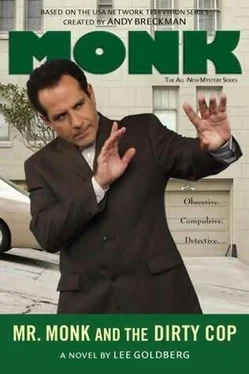


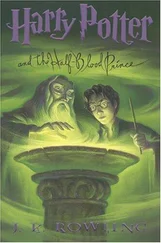
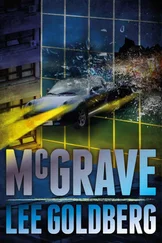
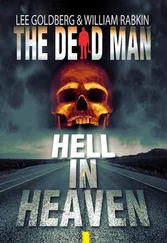

![О Генри - Фараон и хорал [The Cop and the Anthem]](/books/415669/o-genri-faraon-i-horal-the-cop-and-the-anthem-thumb.webp)




